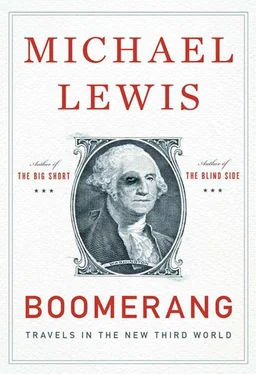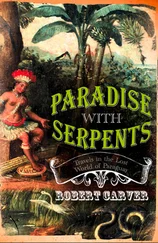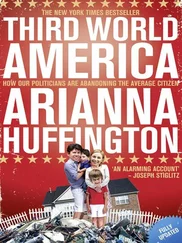There is an ancient rule of financial life—if you owe the bank 5 million bucks, the bank owns you, but if you owe the bank 5 billion bucks, you own the bank—that newly applies to Ireland. The debts of Ireland’s big property developers—defined as anyone who owed the bank more than 20 million euros—are now being worked out behind closed doors. In exchange for helping the government to manage or liquidate their real estate portfolios, the biggest failures have been spared bankruptcy. Smaller developers, like McNamara, are in a far harder place; and while no one seems to know how many of these people exist, the number is clearly big. Ireland’s National Asset Management Agency controls roughly 80 billion euros’ worth of commercial property loans. An Irish property expert named Peter Bacon, who advised NAMA when it was created, recently revealed that when he’d added up the smaller Irish property-related loans (those under 20 million euros), they amounted to another 80 billion euros. Some very large number of former Irish tradesmen are in exactly Joe McNamara’s situation. Some very large number of Irish homeowners are in something very like it.
The difference between McNamara and everyone else is that he’d complained about it, publicly. But then, apparently, had genuinely thought better of it. I’d tracked down and phoned his ex-wife, who just laughed and told me to get lost. I finally reached McNamara himself, ambushing him on his cell phone. But he only muttered something about not wanting to draw further attention to himself, then hung up. It was only after I texted him to say I was en route to his hometown that he became sufficiently aroused to communicate. “What are you doing in Keel????” he hollered by text message, more than once. “Tell me Why are you going to Keel ???” Then, once again, he fell silent. “The problem with the Irish people,” Ian says, as we drive away from the black hole that bankrupted Joe McNamara, “is that you can push them and push them and push them. But when they break they go wacko.” (A month later, after a period of silence, McNamara would reappear, screaming from the top of a building crane that he had driven across the country and ditched, once again, in front of the Parliament.)
TWO THINGS STRIKE every Irish person when he comes to America, Irish friends tell me: the vastness of the country, and the seemingly endless desire of its people to talk about their personal problems. Two things strike an American when he comes to Ireland: how small it is, and how tight-lipped. An Irish person with a personal problem takes it into a hole with him, like a squirrel with a nut before winter. He tortures himself and sometimes his loved ones, too. What he doesn’t do, if he has suffered some reversal, is vent about it to the outside world. The famous Irish gift of gab is a cover for all the things they aren’t telling you.
So far as I could see, by November 10, 2010, the population of Irish people willing to make a stink about what has happened to them had been reduced to one: the egg-thrower. The next day we pull up outside his home, a modest old row house on the outskirts of Dublin. The cheery elderly gentleman who opens the door in a neat burgundy sweater and well-pressed slacks has, among his other qualities, fantastically good manners. He has the ability to seem pleased even when total strangers ring his doorbell, and to make them feel welcome. On the table in Gary Keogh’s small and tidy dining room is a book, created by his grandchildren, dated May 2009. Granddad’s Eggcellent Adventure, it is called.
In the months after Brian Lenihan’s bank bailout, Keogh, for the first time in his life, began to pay attention to the behavior of the Irish bankers. His own shares in AIB, once thought to be as sound as cash or gold, were rapidly becoming worthless, but the bank’s executives exhibited not the first hint of remorse or shame. AIB’s chairman, Dermot Gleeson, and its CEO, Eugene Sheehy, troubled him the most. “The two of ’em stood up, time and again, and said, ‘Our bank is one hundred percent sound,’” explains Keogh. “As if nothing at all was the matter!” He set out to learn more about these people in whom he had always placed blind trust. What he found—high pay, corporate boondoggles—outraged him further. “The chairman paid himself four hundred seventy-five thousand to chair twelve meetings!” he still shouts.
What Keogh learned remains both the most shocking and the most familiar aspect of the Irish catastrophe: how easily ancient financial institutions abandoned their traditions and principles. An upstart bank, Anglo Irish, had entered their market, and professed to have found a new and better way to be a banker. Anglo made incredibly quick decisions: an Irish property developer could walk into Anglo’s office in the late afternoon with a new idea and walk out with hundreds of millions of euros the same night. Anglo was able to shovel money out its door so quickly because it had turned banking into a family affair: if they liked the man they didn’t bother to evaluate his project.
Rather than point out the insanity of the approach, the two old Irish banks simply caved to it. An Irish businessman named Denis O’Brien sat on the board of the Bank of Ireland in 2005, when it was faced with the astonishing growth of Anglo Irish. (Anglo Irish was about to double in size in just two years.) “I remember the CEO coming in and saying, ‘We’re going to grow at 30 percent a year,’” O Brien told me. “I said how the fuck are you going to do that? Banking is a five-to-seven-percent-a-year growth business at best.”
They did it by doing what Anglo Irish had done: writing checks to Irish property developers to buy Irish land at any price. AIB, which had paid its lending officers based on how many dollars they lent, opened a unit nicknamed ABA (Anybody but Anglo), dedicated to poaching Anglo’s biggest property developer clients—the very people who would become the most spectacular busts in Irish history. In October 2008 the Irish Times published a list of the five biggest real estate deals from the past three years. Allied Irish lent the money for ten of the fifteen, Anglo Irish for just one. On Irish national radio the insolvent property developer Simon Kelly, who personally owes 200 million euros to various Irish banks and who belongs to a partnership that owes another 2 billion euros, confessed that the only time in his career a banker became upset with him was when he repaid a loan, to Anglo Irish—with money borrowed from Allied Irish. The former Anglo Irish executives I interviewed (off the record, as they are all in hiding) speak of their older, more respectable imitators with a kind of amazement. “Yes, we were out of control,” they say, in so many words. “But those guys were fucking nuts .”
Gary Keogh thought about how Ireland had changed from his youth, when the country was dirt poor. “I used to collect bottle caps,” he says. “Now the health service doesn’t even bother to take back crutches anymore? No! We’re far too wealthy.” Unlike most people he knew, Keogh had no debts. “I had nothing to lose,” he says. “I didn’t owe anyone any money. That’s why I could do it!” He’d also just recovered from a serious illness, and felt a bit as if he was playing with house money. “I had just got a new kidney and I was very pleased with it,” he says. “But I think it must have been Che Guevera’s kidney.” He describes his elaborate plot the way an assassin might describe the perfect hit. “I only had two rotten eggs,” he says, “but by God they were rotten! Because I kept them six weeks in the garage!”
The AIB shareholders meeting of March 2009 was the first he’d ever attended. He was, he admits, a bit worried something might go wrong. Worried parking might be a problem, he took the bus; worried that his eggs might break, he designed a container to protect them; worried that he didn’t even know what the room looked like, he left himself time to case the meeting hall. “I got to the front door early and had a little recce,” as he puts it, “just to see what was going to happen.” His egg container was too large to sneak inside, so he ditched it. “I had one egg in each jacket pocket,” he says. Worried that his eggs might be too slippery to grip and throw, he’d wrapped each of them in a thin layer of cellophane. “I positioned myself four rows back and four seats in,” he says. “Not too close but not too far.” Then he waited for his moment.
Читать дальше












